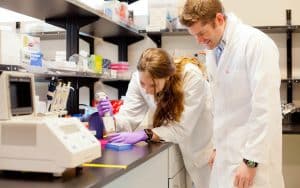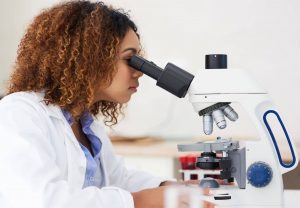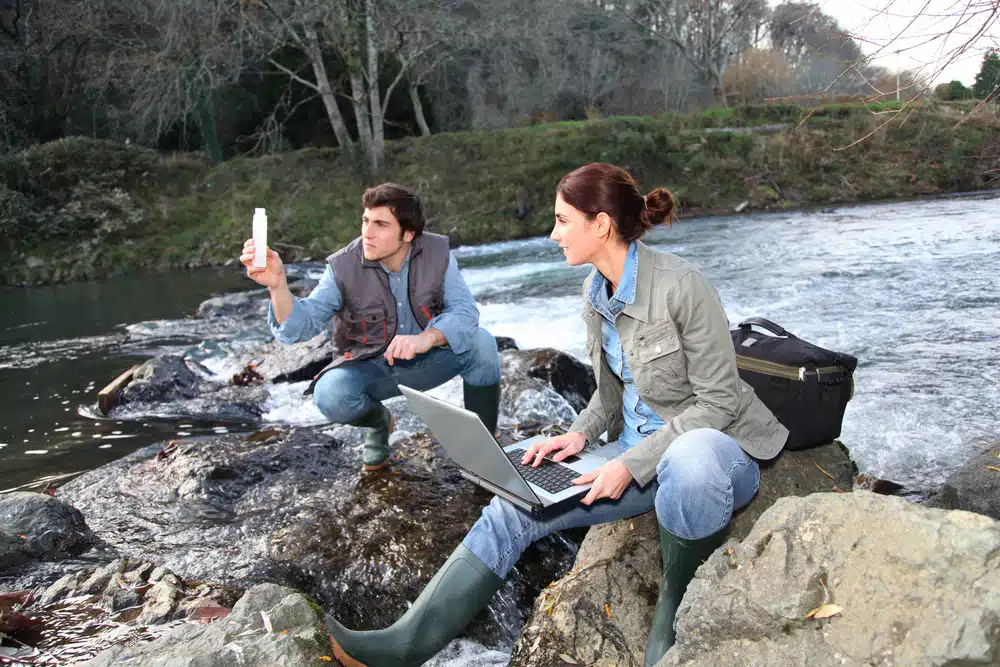15 Biology Research Opportunities for High School Students
Biology is your go-to science, a branch of science that’s filled with endless opportunities for discovery and innovation. If you’re a high school student with a love for biology, plenty of research opportunities await to give you a taste of the professional scientific research world. These experiences offer so much more than your typical classroom lessons.
This article presents 15 biology research opportunities for high school students designed for scholars eager to explore this scientific field. These opportunities allow students to apply their learning in practical settings and prepare them for future academic and career pursuits in science.
From environmental studies and biomedical research to genetics and beyond, each program offers a unique chance to delve into specific areas of interest, guided by experts and utilizing cutting-edge technologies.
1. HiSTEP at NIH
- Location: Bethesda, Maryland
- Subfield: Biomedical and healthcare
- Eligibility: High school juniors from the DMV area with a minimum 3.0 GPA
- Important Dates: Application deadline: January 12.
The High School Scientific Training and Enrichment Program (HiSTEP) at the National Institutes of Health (NIH) is a distinguished example of biology research opportunities for high school students, especially those residing in the District of Columbia, Virginia, and Maryland metro area.

Tailored for high school juniors who demonstrate a keen interest in biomedical and healthcare careers, HiSTEP fosters the development of basic science skills and immerses participants in a rich curriculum covering a broad array of STEM-M topics.
Through workshops, lectures, and hands-on experiences on the NIH campus in Bethesda, Maryland, the program aims to broaden students’ perspectives on science and healthcare professions while promoting diversity in these fields.
Eligibility criteria ensure the program is accessible to students who meet specific academic and socioeconomic thresholds, ensuring that those who could most benefit from such an experience have the opportunity to do so.
2. George Washington Carver Internship Program
- Location: Iowa State University, Iowa
- Subfield: Food systems and agricultural processes
- Eligibility: U.S. citizens and legal residents with a minimum 3.0 GPA
- Important Dates: Application deadline: February 1.
The George Washington Carver Internship Program represents a remarkable opportunity among biology research opportunities for high school students, particularly those interested in agriculture, food systems, and environmental science.

Hosted by Iowa State University, this program invites students to engage directly in the scientific research process by spending eight weeks on campus conducting research alongside experienced mentors.
Participants delve into projects that could range from studying plant genetics to exploring sustainable agricultural practices, providing them with a comprehensive overview of the challenges and innovations in the field of agricultural sciences.
The internship is designed to equip students with hands-on research experience and inspire them to consider future careers in these critical areas of study. With provisions for on-campus housing, a meal plan, round-trip airfare, and a stipend, the program breaks down barriers to participation, making it accessible to U.S. citizens and legal residents who meet the academic criteria.
3. Pacific Northwest National Laboratory Young Women in Science (YWIS)
- Location: Pacific Northwest National Laboratory
- Subfield: STEM
- Eligibility: Female high school students interested in STEM
- Important Dates: Application deadline varies.
The Pacific Northwest National Laboratory Young Women in Science (YWIS) program is a pioneering initiative designed to provide biology research opportunities for high school students, focusing specifically on empowering female students through science.

This program, set within the prestigious environment of the Pacific Northwest National Laboratory, is tailored to foster an inclusive atmosphere where young women can explore their interests in various STEM fields, including biology, environmental science, and more.
Over ten weeks during the summer, participants can work closely with scientist mentors on real research projects, gaining invaluable hands-on experience beyond the conventional classroom setting. Alongside the research component, the YWIS program enriches its participants’ experience with various developmental activities such as laboratory demonstrations, field trips, and workshops designed to build skills, knowledge, and confidence.
This initiative aims to inspire the next generation of female scientists by exposing them to the vast possibilities within scientific inquiry. It also strives to break down gender barriers in STEM by actively encouraging young women to pursue their scientific interests.
4. Broad Summer Scholars Program
- Location: Cambridge, Massachusetts
- Subfield: Cancer biology, chemical biology, computational biology, infectious disease
- Eligibility: Rising Massachusetts high school seniors with Bs in science and math
- Important Dates: Application deadline: January 10.
The Broad Summer Scholars Program is a standout initiative among biology research opportunities for high school students, hosted by the Broad Institute in Cambridge, Massachusetts.

This program provides an immersive six-week experience that invites rising high school seniors to dive into the world of scientific research across various domains such as cancer biology, chemical biology, computational biology, and infectious disease.
Aimed at fostering a deeper understanding of biology and encouraging the pursuit of science careers, the program connects students with cutting-edge research projects, enabling them to work alongside renowned scientists and researchers.
Participants are given the unique opportunity to conduct significant research and explore potential science careers, attend informative scientific talks, and expand their network of peers with similar interests.
5. Brown Environmental Leadership Labs (BELL)
- Location: Anchorage, AK; Mammoth, CA; Providence, RI
- Subfield: Environmental science
- Eligibility: High school students
- Important Dates: Application deadline: May 10, 2024.
The Brown Environmental Leadership Labs (BELL) is a prominent fixture among biology research opportunities for high school students seeking to explore environmental science in a profoundly immersive setting.

This program, hosted by Brown University, takes students through some of the most breathtaking landscapes in Anchorage, AK, Mammoth, CA, or Providence, RI. The landscapes offer a backdrop for study and a hands-on laboratory for understanding the intricacies of environmental challenges.
Participants explore issues such as climate change, sustainability practices, and the socio-political dynamics of environmental stewardship while being guided to develop their environmental action plans.
This initiative is designed to mold future environmental leaders by empowering them with the knowledge, skills, and perspective needed to advocate for and implement real-world solutions in their communities.
6. Summer Child Health Research Internship
- Location: Boulder, Colorado
- Subfield: Child health
- Eligibility: Rising high school seniors, college students, and first-year medical students
- Important Dates: Application deadline: Early February.
The Summer Child Health Research Internship offers an unparalleled opportunity among biology research opportunities for high school students with a keen interest in pediatric health and medical research.

This program, hosted by the University of Colorado Boulder’s Department of Pediatrics, immerses participants in biomedical research and pays a stipend, making it both an educational and financially beneficial experience.
Throughout the program, students are engaged in hands-on research projects under the mentorship of seasoned professionals, providing a real-world glimpse into the challenges and advancements in child health.
Additionally, the program encourages participants to develop their scientific communication skills by preparing a written summary of their research findings. Remarkably, students are allowed to present their work at local, regional, and national meetings, with the program offering support for travel and registration fees if their paper is accepted.
7. Center for Talented Youth (CTY) Honors Biology
- Location: Online
- Subfield: Biology
- Eligibility: Academically advanced students (grade 7+)
- Important Dates: Ongoing applications.
The Center for Talented Youth (CTY) Honors Biology course at Johns Hopkins University stands out among biology research opportunities for high school students. It offers a deep dive into complex biological concepts through an accessible online platform.

This program is tailored for academically advanced students starting in grade 7 eager to challenge themselves beyond the traditional classroom setting. CTY Honors Biology allows students to explore the intricate world of biology. It does so with the flexibility of online learning, making it a viable option for students regardless of their geographic location.
The course’s structure emphasizes academic rigor, promoting a thorough understanding of biological principles and their application in various scientific contexts. By focusing on engaging students with challenging content, the program aims to foster a deeper appreciation and understanding of biology among its participants.
This unique opportunity provides a comprehensive introduction to the field, encouraging students to pursue further studies and careers in biology and related disciplines. By participating in this program, students can expect to enhance their scientific knowledge and analytical skills and possibly even spark a lifelong passion for biological sciences.
8. Johns Hopkins Internship in Brain Science Program (JHIBS)
- Location: Baltimore, MD
- Subfield: Neurological sciences
- Eligibility: Baltimore-area high school students
- Important Dates: 8-week summer program.
The Johns Hopkins Internship in Brain Science Program (JHIBS) is an engaging and impactful initiative among the biology research opportunities for high school students, particularly those in the Baltimore area interested in neurological sciences.

This 8-week summer program is designed to immerse participants in the cutting-edge field of brain science, providing them with firsthand experience in neuroscience research. JHIBS serves as a unique platform for students to gain exposure to the complexities of the brain, understand the latest scientific research methods, and discover potential career paths in this rapidly evolving discipline.
By participating in this program, students receive invaluable mentorship from leading experts in the field and contribute to meaningful research that could have long-term implications for understanding brain function and treating neurological diseases.
This initiative highlights Johns Hopkins University’s commitment to advancing neuroscience research and education while fostering the next generation of scientists and medical professionals with a solid foundation in brain science.
9. GeneLab for High Schools (GL4HS)
- Location: NASA, varies
- Subfield: Space life sciences
- Eligibility: High school students
- Important Dates: N/A.
GeneLab for High Schools (GL4HS) is an innovative program at the forefront of biology research opportunities for high school students, particularly those fascinated by the convergence of biology and space exploration.

This unique initiative, developed by NASA, seeks to involve students in analyzing biological data derived from spaceflight experiments. Participating in GL4HS gives students a rare chance to work with data that could provide insights into how microgravity and other space conditions affect life beyond Earth’s atmosphere.
This program not only offers an introduction to astrobiology and space life sciences but also equips students with valuable skills in data analysis and scientific research methods.
The focus on real-world data from space missions underscores the program’s commitment to advancing our understanding of life in space and preparing students for futures in STEM fields where they might one day contribute to groundbreaking discoveries.
10. Texas Tech University’s Research Program
- Location: Lubbock, Texas
- Subfield: Health sciences
- Eligibility: High school students
- Important Dates: Application deadline: February 15, 2024.
The Texas Tech University’s Research Program emerges as a significant opportunity for high school students in the landscape of biology research opportunities, offering a platform for participants to delve into health sciences research.

This 7-week intensive program, based in Lubbock, TX, is designed to immerse students in a research-based environment where they can work alongside Texas Tech’s General Health Sciences Center professors.
The program not only introduces students to the fundamentals of scientific research but also exposes them to weekly seminars and discussion sections, enriching their understanding of current issues and methodologies in health sciences. Additionally, field trips are organized to provide a broader perspective on the real-world applications of their research.
This initiative is structured to build students’ knowledge and skills in health sciences and inspire them to consider future careers in this vital field. Texas Tech University’s Research Program is pivotal in cultivating the next generation of scientists and healthcare professionalsby providing high school students with university resources and mentorship.
11. University of Chicago’s Research in the Biological Sciences
- Location: University of Chicago
- Subfield: Molecular biology, microbiology, cellular biology
- Eligibility: High school students
- Important Dates: N/A.
The University of Chicago’s Research in the Biological Sciences (RIBS) is a standout program in biology research opportunities for high school students. This intensive four-week summer course is designed to immerse students in various cutting-edge molecular, microbiological, and cell biological techniques currently used in research laboratories.

Set against the backdrop of one of the nation’s leading research universities, RIBS participants spend most of their days in the lab, gaining hands-on experience beyond the standard high school curriculum.
Starting with basic lab techniques, the course gradually moves towards more specialized molecular methods in cell biology, genetics, developmental biology, and cancer biology. The highlight for many students is the opportunity to conduct an independent project, allowing them to apply their newfound skills to fundamental research questions.
This program not only provides participants with a glimpse into the life of a research scientist but also equips them with the knowledge and experience to pursue further studies and careers in the biological sciences.
12. Waksman Student Scholars Program
- Location: Rutgers University
- Subfield: Molecular biology, bioinformatics
- Eligibility: High school students and their teachers
- Important Dates: N/A.
The Waksman Student Scholars Program (WSSP) offers a unique opportunity among biology research opportunities for high school students, focusing on molecular biology and bioinformatics.

This distinctive program, hosted by Rutgers University, enables high school students and their teachers to engage in genuine research projects over the academic year, starting with a summer institute.
The program’s hands-on approach allows students to work on real scientific problems. By analyzing DNA sequences that could be published in scientific databases, students contribute to understanding molecular biology.
The WSSP is not just about conducting experiments; it also encompasses data analysis and interpretation, providing participants with a comprehensive experience in scientific research. By working alongside research scientists and utilizing cutting-edge technology and methodologies, students gain a deep understanding of how science operates outside of the traditional classroom setting.
13. Research Science Institute (RSI)
- Location: Center for Excellence in Education
- Subfield: Scientific research and collaboration
- Eligibility: Exceptional high school students
- Important Dates: N/A.
The Research Science Institute (RSI), hosted by the Center for Excellence in Education, represents one of the premier biology research opportunities for high school students globally. This highly selective summer program gathers some of the most promising students worldwide to engage in rigorous scientific research.

Participants have the unique opportunity to conduct original, cutting-edge research in biology, chemistry, physics, and engineering. The program combines on-campus coursework in scientific theory with hands-on research in a state-of-the-art laboratory under the mentorship of leading scientists and researchers.
This immersive, six-week experience at the Massachusetts Institute of Technology (MIT) is designed to challenge and expand students’ understanding of their chosen field of study. It fosters a community of young scientists dedicated to pursuing careers in science and technology.
Beyond the laboratory, RSI provides a comprehensive experience with guest lectures and seminars, offering students insights into the latest scientific discoveries and research methodologies. This program accelerates participants’ academic careers and builds a strong foundation for future scientific community contributions.
14. Aspiring Scientists Summer Internship Program (ASSIP) – George Mason University
- Location: Options for remote, in-person, or hybrid formats
- Subfield: Various STEM fields, including astronomy, biochemistry, drug discovery, environmental science
- Eligibility: Minimum age of 15 or 16 by June 18th, 2024, depending on the lab type
- Important Dates: June 18 – August 9, 2024.
The Aspiring Scientists Summer Internship Program (ASSIP) at George Mason University epitomizes a premier example of biology research opportunities for high school students, offering an immersive dive into the world of scientific research.

Over 8 weeks, participants are granted the unique opportunity to work alongside George Mason University’s distinguished faculty and researchers, utilizing state-of-the-art equipment and technologies to explore diverse fields within biology, including neuroscience, biochemistry, environmental science, and more.
This program is tailored to foster scientific skills and knowledge and enhance participants’ scientific writing and communication abilities, crucial competencies for budding scientists. Furthermore, ASSIP strongly emphasizes career exploration within STEM fields, facilitating discussions and meetings with role models to help students envision potential career paths.
The program’s flexibility to offer remote, in-person, or hybrid formats ensures that a broad range of students can participate, making cutting-edge scientific research accessible to those at the critical stage of shaping their future academic and professional pursuits.
15. World Science Scholars
- Location: Online
- Subfield: Science
- Eligibility: High school students passionate about science
- Important Dates: N/A.
The World Science Scholars program is a transformative initiative among biology research opportunities for high school students focusing on expanding the horizons of exceptionally talented young individuals in science and mathematics.

This program, designed for students with remarkable abilities in these areas, aims to further challenge and develop their talents through advanced online courses and collaborative projects. Participants have the rare opportunity to engage with leading scientists and educators, gaining insights into complex scientific topics that extend well beyond the standard high school curriculum.
The program deepens their understanding of scientific principles and encourages them to apply these concepts innovatively, potentially contributing to real-world solutions. Moreover, the World Science Scholars program fosters a global community of like-minded peers, providing a supportive network for these young scholars to exchange ideas and inspire one another.
Through this initiative, students are equipped with the knowledge, skills, and connections that can propel them to the forefront of scientific research and discovery, setting the foundation for future endeavors in biology and other scientific fields.
What Skills Can Students Gain from Participating in Biology Research?
Participating in biology research opportunities for high school students equips young scholars with a multifaceted skill set beyond traditional classroom learning. Firstly, students develop a strong foundation in scientific inquiry and analytical thinking, learning how to formulate hypotheses, design experiments, and interpret data. These opportunities often require students to engage in critical thinking and problem-solving, invaluable skills in any academic or professional setting.
Furthermore, participation in research projects enhances students’ technical competencies, including proficiency in laboratory techniques, use of scientific equipment, and familiarity with statistical software, essential for pursuing advanced studies and careers in the sciences.
What Are Unique Features of Some High School Biology Research Opportunities?
The landscape of biology research opportunities for high school students is diverse, offering a range of unique features that cater to different interests, skills, and career aspirations.

One distinctive aspect is the breadth of research areas available, from environmental science and sustainability efforts at programs like the Brown Environmental Leadership Labs (BELL) to the cutting-edge biomedical and genomics research conducted through initiatives like the Broad Summer Scholars Program and the GeneLab for High Schools (GL4HS) project. These programs often provide access to state-of-the-art laboratories and equipment, allowing students to conduct experiments and analyses on par with professional research settings.
Another unique feature is the emphasis on real-world impact and interdisciplinary collaboration. For instance, projects may tackle pressing global challenges, such as climate change or infectious diseases, encouraging students to apply their biological knowledge to develop viable solutions.
Additionally, many programs foster collaboration across scientific disciplines, enabling students to see the interconnectedness of biology with fields like chemistry, physics, and computational science, thus broadening their perspectives and enhancing their problem-solving skills.
The mentorship component is also a hallmark of these research opportunities. Students receive guidance from experienced scientists and researchers. This mentorship extends beyond laboratory techniques, encompassing professional development, scientific ethics, and career planning.
Furthermore, some programs emphasize community engagement and leadership development, preparing students to communicate scientific knowledge effectively to the public and to lead future scientific endeavors.
Finally, the opportunity for students to contribute to original research that can be published or presented at scientific conferences is a significant feature that sets these programs apart. This not only adds to the academic credentials of young scholars but also instills a sense of accomplishment and contribution to the scientific community.
How Do High School Biology Research Programs Prepare Students for College?
High school biology research programs offer a robust preparation for college by immersing students in real-world scientific research, thereby equipping them with a comprehensive set of skills and experiences.
Participating in biology research opportunities for high school students allows individuals to gain hands-on experience in the lab, familiarizing them with experimental procedures, data analysis, and applying scientific methods to solve complex problems—skills directly transferable to college-level biology courses.
Additionally, these programs often involve critical thinking and interdisciplinary learning, encouraging students to integrate knowledge from various scientific fields, which enhances their ability to tackle the multifaceted challenges they will encounter in higher education.
The collaborative nature of research also teaches students teamwork and leadership as they learn to work effectively with peers and mentors. This fosters a sense of community and mutual respect that is vital for academic and professional growth.
Conclusion
Exploring biology research opportunities for high school students opens doors to a world of scientific inquiry and discovery, laying a solid foundation for future endeavors in the vast field of biology.
These programs offer more than just a deep dive into various biological subfields; they provide a platform for personal and professional growth, skill development, and invaluable networking opportunities with peers and mentors alike.
As students participate in these research opportunities, they enrich their understanding of biology and contribute to meaningful scientific advancements. Whether your interest lies in the intricate workings of the human genome, the complexities of ecosystems, or the frontiers of bioengineering, these opportunities are stepping stones to a future where you can make a significant impact.
Armed with experience, knowledge, and a network of like-minded individuals, students who take advantage of these opportunities are well on their way to becoming the next generation of scientists, ready to tackle the challenges and opportunities that lie ahead in pursuing scientific discovery and innovation.




































